Applications
Lab-Grown Milk and Dairy Alternatives
The journey begins with cultivating plant cells or yeast in a controlled environment within the bioreactor. Using the Applikon Glass Autoclavable Bioreactor, researchers can cultivate plant cells specifically tailored for dairy production, such as soybeans, oats, or almonds. Through precise regulation of temperature, pH levels, and nutrient composition, plant cells undergo proliferation and differentiation, mimicking the natural growth process.
Alternatively, there are also processes to produce alternative proteins based on the fermentation of yeast and subsequent extraction. These techniques enable the production of lab-grown milk, a sustainable alternative to traditional dairy products.
The process involves fermenting specifically engineered yeast strains for yeast-based dairy production. These yeast strains are designed to produce dairy proteins such as casein and whey, which are key components of traditional dairy milk. The yeast is cultured in a bioreactor, where it ferments a sugar-rich medium to proliferate and produce these dairy proteins. After sufficient growth, the yeast culture undergoes a harvesting and purification process to extract the proteins.
The extracted proteins are then formulated into a product that resembles dairy milk. The result is a yeast-derived milk product that provides the sensory experience of dairy milk without the environmental impact of animal agriculture.
Plant cells or yeast cells are cultured in a nutrient-rich medium, allowing them to thrive and multiply. As the cells proliferate, they secrete proteins and fats characteristic of dairy milk, resulting in a plant-based milk alternative or yeast cream that closely resembles its animal-derived counterpart in taste and texture.
Lab-Grown Cheese and Dairy Products
The bioreactor facilitates the production of lab-grown cheese and other dairy products in addition to milk. After harvesting the cultured cells, they undergo further processing to extract proteins and fats essential for cheese-making. By combining these components with natural enzymes and flavoring agents, scientists can create artisanal cheeses with unique textures and flavors, all without the need for animal-derived ingredients.
Through innovative techniques such as fermentation and aging, lab-grown cheeses develop complex flavor profiles and textures comparable to traditional dairy cheeses. The controlled environment of the bioreactor ensures consistency and purity throughout the production process, resulting in high-quality, sustainable dairy alternatives suitable for both culinary and nutritional applications.
Plant-Based Food Products Beyond Dairy
Beyond dairy alternatives, bioreactor technology opens doors to a wide range of plant-based protein products, including lab-grown chocolate, coffee, nuts, oils, and mycoprotein vegan options. By cultivating plant cells in a controlled environment, researchers can extract essential nutrients and bioactive compounds characteristic of these foods, offering consumers sustainable and ethically sourced alternatives to traditional products.
Exploring the Stages of Plant-Based Food Production Using Bioreactor Technology
- Cell Cultivation
The process begins with cultivating plant cells in a controlled environment within the bioreactor. Plant cells, selected for their composition, are cultured in a nutrient-rich medium that provides essential nutrients for growth and proliferation.
- Proliferation and Differentiation
Within the bioreactor, the cultured plant cells undergo proliferation and differentiation, analogous to the natural growth process. Essential growth parameters such as temperature, pH value, and dissolved oxygen concentration are precisely controlled, allowing cells to multiply and differentiate into specialized cell types.
- Extraction
After reaching optimal density and maturity, the cultured plant cells are harvested from the bioreactor. They are then processed to extract proteins, fats, or other essential nutrients essential for plant-based food production.
- Product Development
In the final stage, the extracted plant cells are used to develop a wide range of plant-based food products, including milk, cheese, chocolate, coffee, nuts, oils, and mycoprotein vegan options. These products undergo rigorous testing to ensure quality, safety, and compliance with regulatory standards. Many countries are currently in the process of defining the regulatory guidelines for cultivated food products.
By following these production stages, manufacturers can harness the power of bioreactor technology to produce high-quality, sustainable plant-based food products that meet the growing demand for environmentally friendly alternatives to traditional foods.
As consumer demand for sustainable and ethical food options continues to rise, bioreactor technology's role in producing plant-based food products becomes increasingly crucial. With the Applikon Glass Autoclavable Bioreactor, researchers and food innovators can explore the vast potential of plant-based food production, revolutionizing how we nourish ourselves while minimizing environmental impact. To learn more about how bioreactor technology is shaping the future of plant-based food, visit Resea Biotec and discover the possibilities of sustainable nutrition.
Feautured Products
Stainless steel bioreactors
Stainless steel bioreactors play a key role in the development and production biotech products. From bench to pilot to full production – the Applikon bioreactors simplify your scale-up through consistent design and scalable control solutions.
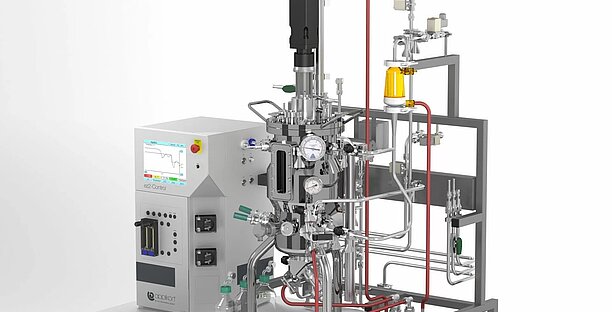
Our portfolio offers both standard systems for fermentation and cell cultures as well as customized systems.
Glass autoclavable bioreactors
The Applikon autoclavable bioreactor is a very popular bioreactor. It is available in 2, 3, 5, 7, 15 and 20-litre volumes. It is easy to adapt if your research changes. Thanks to the modularity and flexibility of the glass bioreactors, you can modify the system to fit any adaptations in process demands.
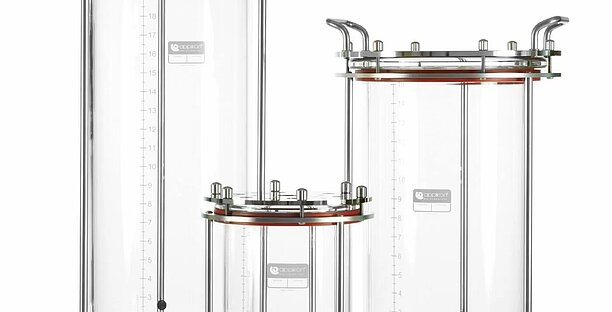
The glass bioreactors help support and optimise your research and process development. The systems are suitable for both cell culture and microbial culture applications.
Mini bioreactors MiniBio
The MiniBio is a true scale down of the traditional lab-scale bioreactor. The reactor is available in 250 mL, 500 mL and 1000 mL volumes and customizable to meet the demands of any bioprocess. It saves time, requires minimal bench space and generates more data with fully scalable results.

Despite its small footprint, the MiniBio can meet any process requirements. Whether for Batch, FedBatch or perfusion processes.
my-Control
This colorful controller with the built-in web server is the ideal solution for small scale bioreactors starting at 50mL working volume. It uses minimal bench space and allows parallel bioprocessing for microbial as well as cell cultures.
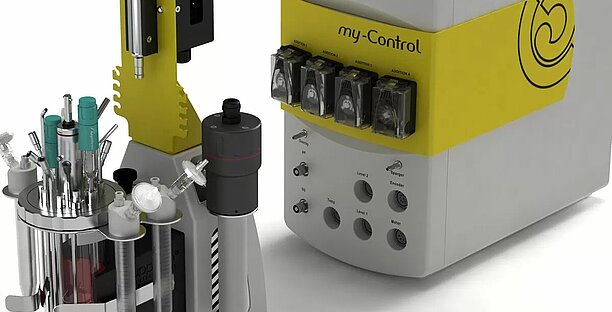
The myControl is the perfect solution for screening, process optimization or media development.
Livit Flex bioprocess control system
The Livit Flex bioprocess controller is an intuitive and easily configurable bioprocess controller that fits any biotech upstream R&D application. Livit Flex can be configured as a single or dual control system for single-use or multi-use bioreactors to optimize bench space in the laboratory.
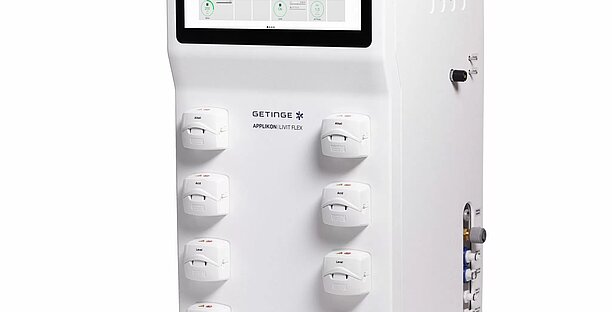
Livit Flex is ideal for use with single-use and reusable bioreactors up to 20L as well as our single-use pilot reactors.
Lucullus PIMS
The Lucullus PIMS software is the perfect solution for monitoring and control and offers a comprehensive toolbox for cross-platform integration and control of the entire bioprocess.
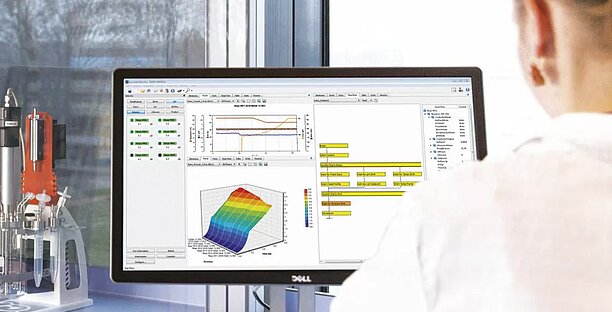
The combination of the software with the modern Applikon bioreactor systems offers the user a unique system for the development of new agents and biotech products.
We are eager to receive your feedback
* Mandatory fields
